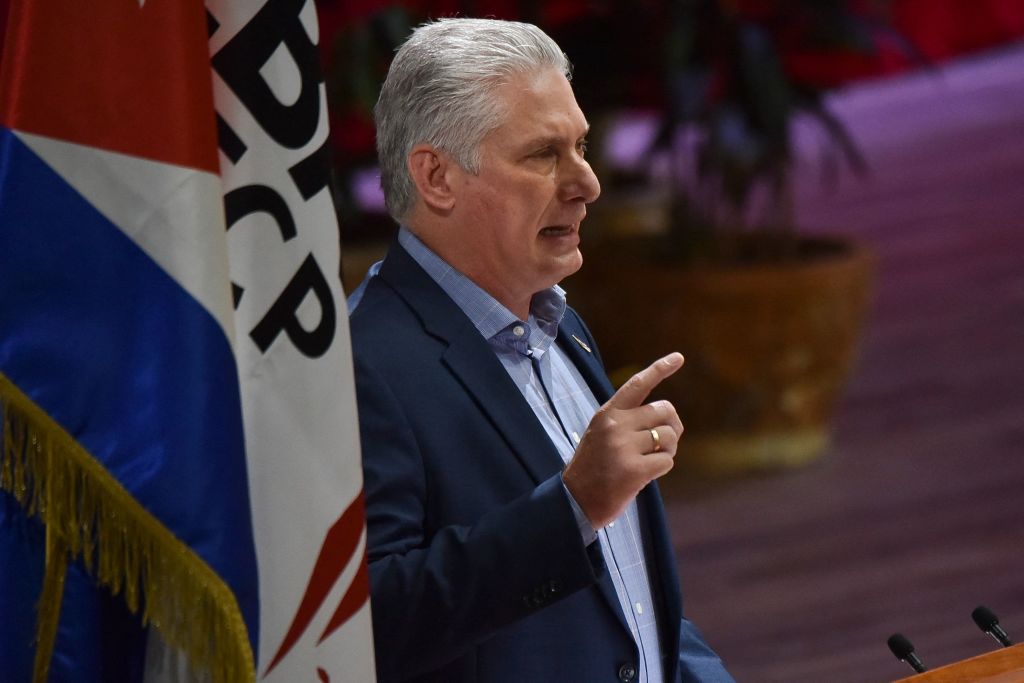
Protesters took to the streets of Cuba on Sunday in a rare outburst of social unrest as a fresh wave of blackouts exacerbated tensions on the cash-strapped island.
Social media posts showed crowds of people in Santiago de Cuba, the second-largest city, chanting “corriente y comida”—power and food—as police looked on.
Most protests are illegal in the communist-run Caribbean nation. But public displays of anger have become more frequent as electricity shortages, inflation and hunger grip the population.
As images of protests swamped social media, there were reports of Internet and mobile service outages across parts of the island. While the unrest appeared widespread in eastern cities, there were no immediate reports it had moved into the capital of Havana.
The weekend demonstrations were reminiscent of July 2021, when thousands took to the streets to protest hunger and Covid-19 restrictions in what became the largest anti-government protests since the 1959 Cuban revolution. Those demonstrations led to a broad crackdown in which human rights groups said more than 1,400 people were detained.
Vicente de la O Levy, the minister of energy and mines, wrote on X that service at the 280 megawatt Antonio Guiteras thermoelectric plant would resume Monday, “substantially improving the situation.” The government had said the outage and fuel delivery delays exacerbated the power crisis over the weekend.
State-run news outlets acknowledged that people took to the streets in Santiago as a result of fuel shortages and the economic crisis. The U.S. Embassy in Cuba said it was aware of reports of peaceful protests in Santiago, Bayamo, Granma and elsewhere, and urged the Cuban government “to respect the human rights of the protesters and address the legitimate needs of the Cuban people.”
Miguel Diaz-Canel, who succeeded Raul Castro as Cuba’s president in 2018 and head of its communist party in 2021, warned that “enemies of the revolution” were attempting to take advantage of the situation.
“Networks of mediocre politicians and terrorists lined up in South Florida were trying to heat up the streets of Cuba with their interventionist messages and calls for chaos,” he wrote on X Monday morning. “They were left wanting.”
Mired in one of its worst economic slumps since the fall of the Soviet Union, Cuba increased gasoline and diesel prices by more than 400% at the start of the month and took other measures in hopes of stabilizing its economy.
The move came after Alejandro Gil Fernandez was fired as economy minister in February, with the government since saying he’s being investigated for unspecified crimes. Cuba also recently asked the U.N.’s World Food Program to deliver milk to children under 7 years of age—an unprecedented request by the island’s communist regime.
More Must-Reads from TIME
- How Donald Trump Won
- The Best Inventions of 2024
- Why Sleep Is the Key to Living Longer
- Robert Zemeckis Just Wants to Move You
- How to Break 8 Toxic Communication Habits
- Nicola Coughlan Bet on Herself—And Won
- Why Vinegar Is So Good for You
- Meet TIME's Newest Class of Next Generation Leaders
Contact us at letters@time.com